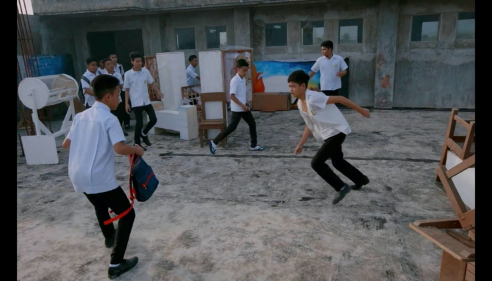Christian Jil R. Benitez
At the heart of existent populism is its plain irreverence to the body, especially of those who are excluded from what is commonly projected as “ordinary.” As such, surveillance has then become the predominant grammar of our times (nothing new, really, but definitely magnified today because enabled by facist structures in place): to be a brown trans woman in the “great American” landscape, to be a grimy young man in tattered clothes in streets of Manila—these often mean being seen right away, the body being subjected to forms of violent scrutiny. Vision has always been a question of power, and yet frequently left uninterrogated: in the contemporary Philippine cinema, to represent the ordinarily excluded often means simply turning the lens toward them, subjecting them to the same gaze. Attempts to render the “real” (another term generally overlooked) recurrently ends up idealized: a woman who finally confronts her perpetrator regresses to romanticized docility, throwing away the gun; the suffering of a child amid the war-torn Mindanao is skirted around and through melodrama.
If contemporary Philippine cinema is to insist itself as relevant these days, for us, the Filipino audience, in the middle of the current regime, such similar gesture of “representation” does not certainly suffice. Perhaps all the more crucial now is an attempt to articulate what often cannot-be, which is to say, to render visually what cannot appear, because always elusive to our current surveilled vocabularies.
Read the rest of this entry »